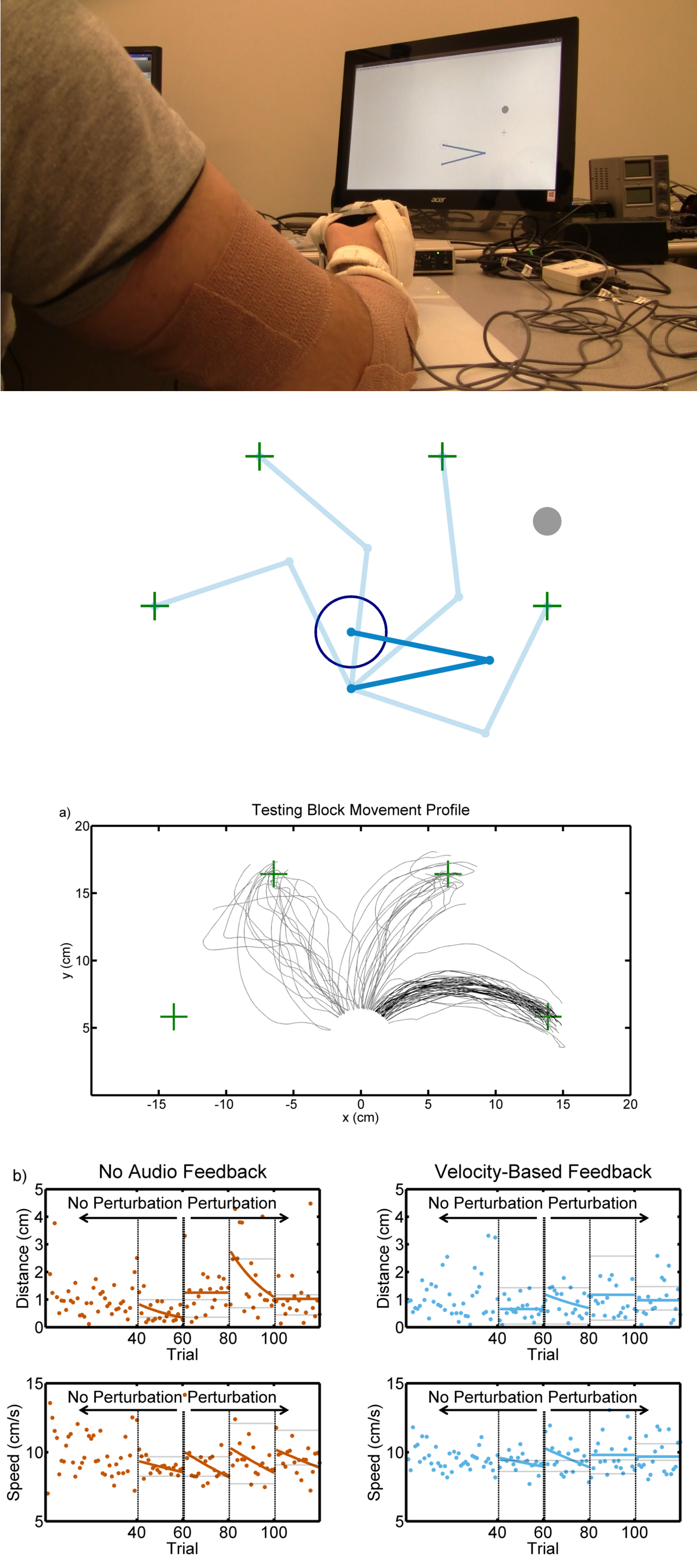Presenting Author:
Eric Earley, M.S.
Principal Investigator:
Levi Hargrove, Ph.D.
Department:
Physical Medicine and Rehabilitation
Keywords:
myoelectric, prosthesis, velocity feedback, sensory substitution, motor learning, motor adaptation
Location:
Ryan Family Atrium, Robert H. Lurie Medical Research Center
C102 - Clinical
Joint-Based Velocity Feedback to Virtual Limb Dynamic Perturbations
Despite significant research developing myoelectric prosthesis controllers, many amputees have difficulty controlling their devices due in part to reduced sensory feedback. Many attempts at providing supplemental sensory feedback have not significantly aided control. We hypothesize this is because the feedback provided contains redundant information already provided by vision. However, whereas vision provides egocentric, position-based feedback, sensory feedback tied to joint coordinates may provide information complementary to vision. In this study, we tested if providing audio feedback of joint velocities can improve performance and adaptation to dynamic perturbations while controlling a virtual limb. While subjects performed time-controlled center-out reaches, we perturbed the dynamics of the system and measured the rate subjects adapted to this change. Our results suggest that initial errors were reduced in the presence of audio feedback, and we theorize this is due to subjects identifying the perturbed limb dynamics sooner. We also noted other possible benefits including improved muscle activation detection.


